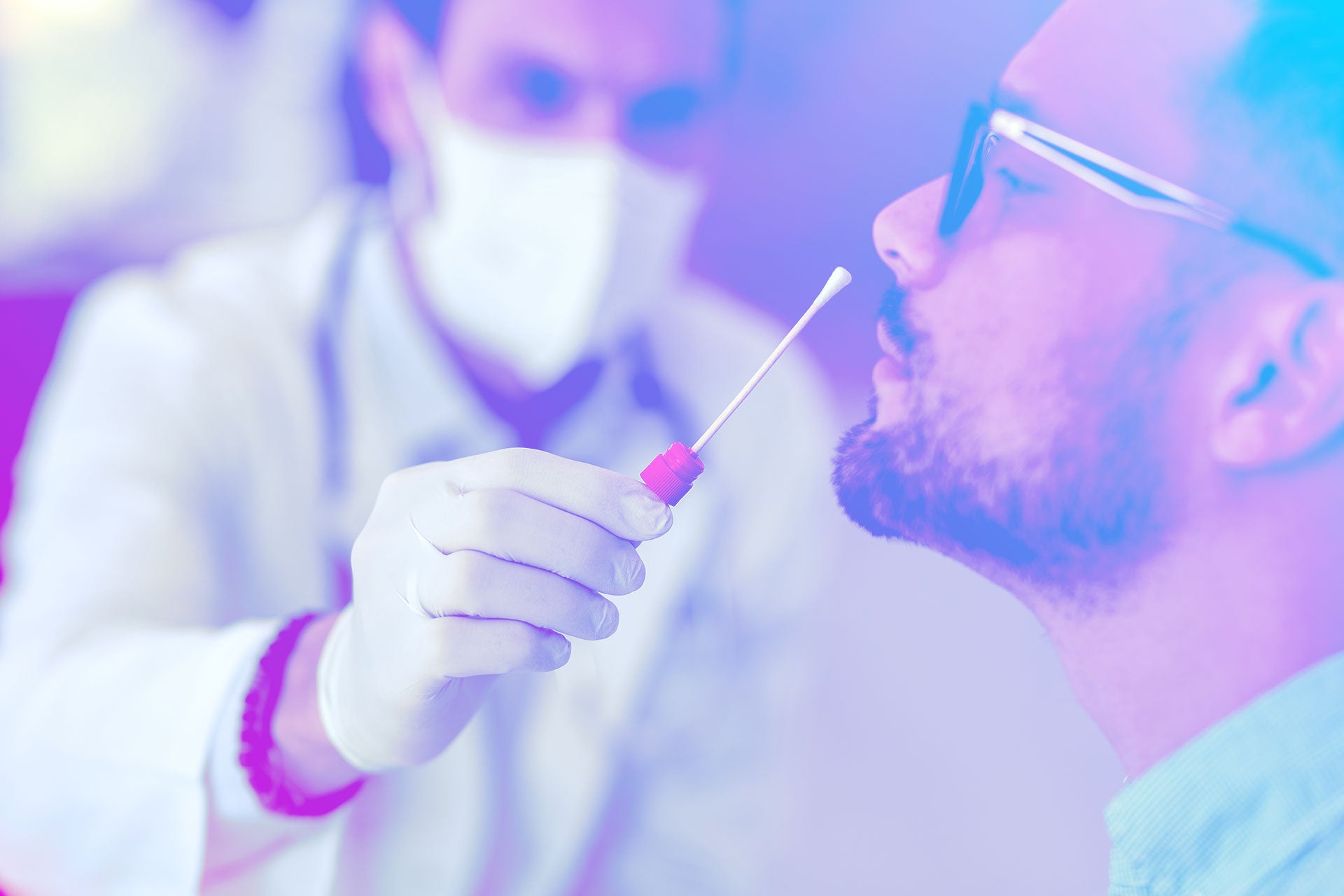
Guidance on COVID-19 tests and testing kits
With an increase in the availability of testing, we thought we'd publish this short guide highlight the different kinds of test available for Covid-19. We've also added helpful links to the gov.uk site.
Virus Test
These tests (sometimes called ‘swab’ or ‘antigen’ tests) check to see if you are currently infected with the virus.
The swab sample is taken from your nose and throat.
Lateral flow antigen test or rapid antigen test
Lateral flow antigen tests can be performed in a laboratory or point of care setting. They are rapid turnaround tests that can process COVID-19 samples on site without the need for laboratory equipment, with most generating results in under half an hour.
Antibody tests
Antibody tests check to see if you have had an infection with the virus in the past. This type of test requires a blood sample.
Antibody tests are currently only offered to NHS and care staff, as well as some hospital patients and care home residents. They can also be bought privately, but it’s important to be aware of their limitations.
These tests are not used for diagnosis but rather to give a better understanding of the prevalence of the virus in different places.
Sample collection kits
For both virus and antibody tests, a sample is taken from you and this sample is then tested in a laboratory by a trained professional to see if you have the virus or have had it in the past.
A sample collection ‘kit’ is the name given to the different parts of a COVID-19 test that help obtain a ‘sample’.
The sample collection kit must have a valid CE mark to show that the manufacturer has met the minimum safety and performance requirements for the product.
The sample you have to provide, and whether or not you can collect that sample yourself, will depend on what type of test you are having.
Please note that not all sample types have been proven to be effective in COVID-19 testing.
Virus test samples
This type of test usually involves collecting a ‘swab’ sample from the nose, mouth, and/or throat. A swab is a small piece of soft, absorbent material on a plastic stick.
Some virus tests use saliva samples, collected into a small container, to check for the virus. However, this type of sampling is not yet done routinely in the UK.
You may collect swab and saliva samples at home yourself (this can also be referred to as ‘self-sampling’), or you can get a healthcare professional to do it. The sample is then sent to a laboratory to check for genetic material from the virus.
Swab self-sampling kits are currently being rolled out at scale by the government to anyone with symptoms. You can access self-sampling kits through the NHS test and trace programme.
Antibody test samples
This type of test uses a blood sample, which can be collected in several ways.
Some antibody test kits require a venous (from the vein) blood sample, which can only be collected by a healthcare professional or qualified person.
Other antibody test kits require a smaller amount of blood to be taken. This type of sample is taken from a capillary via a finger prick blood sample. In certain cases, you may be required to then put this sample on special paper to dry – this is known as a dried blood spot (DBS). When only a small amount of blood is required, you may collect the blood sample at home yourself, or you can get a healthcare professional to do it.
Both capillary and venous blood samples are sent to a laboratory to check for antibodies.
Limitations of COVID-19 tests
No test is 100% reliable, even those with valid CE marks. The results are also only relevant to that sample at that point in time.
It’s important to understand the limitations of COVID-19 tests, because an incorrect or misinterpreted result can lead to a false sense of reassurance. For example, if you are infected with the virus but the test you use produces a false negative result (it says you do not have the virus even though you do), you may unknowingly spread the virus to other people or not seek the treatment you may need.
Antibody testing in particular has limitations, largely because there is a lot we don’t yet know about immunity to COVID-19. For example, we don’t yet know whether:
- antibodies protect you from getting COVID-19 in the future
- antibodies stop you from passing the virus on to others
- having a negative antibody test means you have never been infected
You can find the reliability (sometimes referred to as ‘sensitivity’) of the test in the label or instructions provided with the testing kit.
Concerns about the use of sample collection kits
Anyone using a sample collection kit to test for COVID-19 must read the instruction leaflet carefully.
It is very important that you have a clear understanding of the process because if the sample is not collected properly, the result may not be accurate.
If you have any concerns with the sample collection kit or any of its parts, please contact the kit provider for advice. If there are any components missing, the provider should be able to send you a replacement to ensure you are able to use the kit safely.
If you are unsure what a test result means, or what you should or should not do once you have received your test result, speak to your doctor or a healthcare professional immediately.
For further Coronavirus information visit the gov.uk website.


